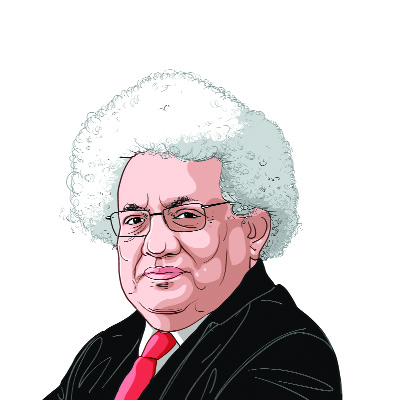Opinion Riding an Elephant
I rode an elephant for the first time ten days ago in Pobitora,a game park on the outskirts of Guwahati.
I rode an elephant for the first time ten days ago in Pobitora,a game park on the outskirts of Guwahati. It was a pleasant but demanding experience. The elephant has a broad back and straddling it extended my leg muscles more than I am used to. But I would recommend the experience to anyone.
Indeed,I would recommend that as many of us should go to the Northeast as possible. It is another country for the Rest of India (ROI) or mainland India as the inhabitants there call it. Apart from a short strip of land astride Bangladeshs northern tip which connects them to ROI,the people of the Northeast have no other easy way of reaching out to ROI. The Brahmaputra,on which I had a brief pleasure boat ride,crosses boundaries of India when it enters Bangladesh. Apart from that,the region borders on Bhutan,Nepal,China and Myanmar. The people tell anyone who would listen that they would like to remind the ROI that they are very much there and very much a part of India. They know that the people of ROI mistake them for Chinese and call them chinki.
The psychological feeling of isolation in the Northeast is striking. Assam does not even figure in the National Anthem (perhaps because a Bengali wrote it!) nor does the Brahmaputra. But then neither do any rivers of South India. The construction of the Indian national identity is relentlessly North Indian; indeed largely Doab and Delhi Sultanate based. The stories of Aryans reciting the Vedas (Punjab) or Muslims invading India (Punjab again) have little connect in the South or Northeast whose indigenous people predate the Aryans. The secularists take pride in Akbar and treat the Mughal Empire as a template of independent India,but then the Mughals or Ashoka or any other King in ROI never conquered Assam. The Northeast is a part of India thanks to the British imperial ambition over Burma.
How many Indians know or care that one of the toughest battle fought on Indian soil was for Kohima in 1944 when the Indian Army under British officers held Kohima against the Japanese and prevented the spread of Second World War on Indian soil? (The INA fought with the Japanese but mainly as sappers and coolies and not as combatants thanks to Japanese racism.) The Northeast was crucial to Indias territorial integrity.
Assam,the largest state in the Northeast,has just had a rapid rise in its growth rate though it still lags behind the ROI. But then with Myanmar about to take off thanks to the latest reforms,Assam will be not so much an isolated part of India but at the hub of a large international indeed multinational growth hub with China also just across the Stilwell Road. The geography of the region will look different when it turns eastwards and become ROIs entry point to ASEAN. But that depends crucially on the end of the insurgency by ULFA which has just been negotiated by Tarun Gogoi,Assams Chief Minister.
It is not just Assam which has had a sub-nationalist insurgency. Along the whole region,there are other identities which have been asserting themselves. Some of these identities have been crystallised in states such as Arunachal,Meghalaya,Mizoram,Tripura,Manipur. But the Bodos want their culture and identity to be preserved. Nagaland has been an insurgent land for the entire period India has been independent and across the border,the Kachins are still at war with the Myanmar government. The region poses fundamental questions of national identity since many communities pre-date British rule and have been autonomous through much of their long history. The British conquered them but independent India has to include them into the narrative of Indian nationhood.
Of course,the Northeast is an integral part of India but it is still up to ROI to make an effort to admit its diverse cultures and histories,its languages and religions into the rich plurality of Indian identities. If we all learn to ride an elephant now,it may yet come to treat us as friends. It is difficult but fun.


